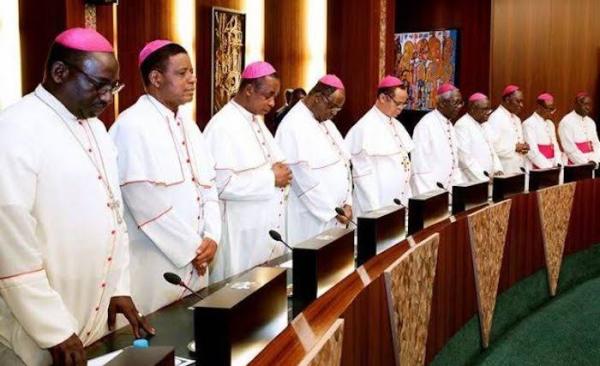CATHOLIC Bishops Conference of Nigeria (CBCN), has described the recent Samoa Agreement as “a threat to the sovereignty and values of Nigeria”.
This was part of a 25-point communique, issued on thursday, after their meeting and signed by the President and Secretary, Most Rev. Lucius IwejuruUgorji and Most Rev. Donatus A. Ogun, respectively.
The Bishops said: “The Agreement looks innocuous and attractive on the surface but underneath it is carefully blended with post-modern secularistic ideologies that significantly undermine the moral, cultural, and religious beliefs of Nigerian citizens.
“We are concerned that our civil authorities may not be fully aware of the implications of the nuanced language in the document, which threatens our national sovereignty and values.
“We, the Catholic Bishops of Nigeria, as watchmen and guides, deeply committed to the sound moral, religious, and cultural growth of our dear country, hereby clearly highlight what the Samoa Document portends for the future of Nigeria and Nigerians and call on our government to, as a matter of urgency, propose an amendment of the Agreement or withdraw from it.”
Taking a hard look at the legal effect of the document, CBCN said: “In international law, when the state signs a Treaty, it indicates its intention to be bound by it in the future, and it demonstrates its support for the principles and goals of the Treaty and its willingness to consider ratifying it in the future.
“Given the secrecy surrounding Nigeria’s signing of the Samoa Agreement, it is unclear whether the signature was tendered subject to Ratification, Acceptance, or Approval.
“The Samoa Agreement essentially gives international law status to Sexual Orientation and Gender Identity, Comprehensive Sexuality Education, and Abortion through its prolific reference to Gender approaches and the phrase Sexual and Reproductive Health and Rights.
“The Treaty does not have a glossary of terms or a definitions section to ensure that all parties have the same understanding of terms, which may pose a problem in its implementation and evaluation phases.
“Ordinarily, signing a Treaty creates an obligation to refrain, in good faith, from acts that would undermine its object and purpose (Arts 10 &18, Vienna Convention on the Law of Treaties 1969). Signing a Treaty serves as an intention to be bound by it when it is enforced.
“Under article 98.3 of the Samoa Agreement, Nigeria, by signing it, bound itself to recognize the validity of any measure taken to implement the Agreement after the date of its entry into force.
“It’s signing makes Nigeria surrender its position as a persistent objector to the impugned language during negotiations in several international fora. Most of Africa has always counted on the leadership of Nigeria to contest anti-life, anti-family, anti-culture and anti-African values at the United Nations.
“The decision not to sign the Samoa Agreement in November 2023, was consistent with Nigeria’s persistent objection to those issues. Its signing has weakened the persistence and consistency of the objection that Nigeria has always had.


